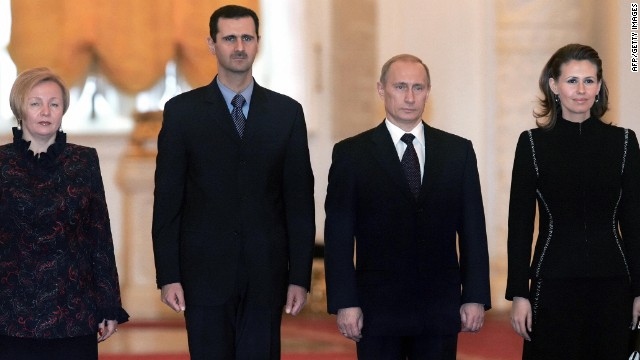Did Russia Push Assad Out? The Whispers of a Syrian Exodus
Remember the brutal peak of the Syrian Civil War? Images of bombed-out cities, desperate refugees, and the relentless conflict painted a grim picture across global news. Amidst the chaos, a rumour, a whisper really, circulated through the international community: Russia, Assad’s staunch ally, had allegedly pressured the Syrian president to temporarily flee the country. It sounds like something out of a spy novel, doesn’t it? But the truth, as is often the case with geopolitical intrigue, is far more complex and shrouded in secrecy. Let’s delve into this fascinating, and potentially explosive, claim.

The Height of the Conflict: A Perfect Storm of Violence
Before we dive into the alleged Russian pressure, it’s crucial to understand the context. By 2012-2014, the Syrian Civil War was raging. The Assad regime, backed by Russia and Iran, was facing a formidable rebellion fueled by a complex mix of factors: sectarian tensions, economic grievances, and the rise of extremist groups like ISIS. The conflict wasn’t just a fight for territory; it was a battle for the very soul of Syria.
Imagine the situation: rebel forces were making significant gains, threatening Damascus, the heart of Assad’s power. International pressure was mounting, with calls for Assad’s resignation echoing from Western capitals. The air was thick with uncertainty, and the future of Syria hung precariously in the balance. This was the perfect breeding ground for rumours, speculation, and, as we’ll explore, potentially, a clandestine plan involving Russia and Assad’s future.
The Whispers Begin: Evidence and Speculation

The story goes something like this: faced with a potentially catastrophic defeat, Russia, concerned about losing its strategic foothold in the Middle East, allegedly suggested to Assad that a temporary departure might be the best course of action. This wasn’t about abandoning him; it was about preserving his regime and ultimately, Russia’s interests. The idea, according to these whispers, was to create a strategic retreat, allowing Assad to regroup and return once the storm subsided.
However, concrete evidence supporting this claim remains elusive. There are no leaked documents, no official statements, and no verifiable eyewitness accounts confirming a direct order from Russia to Assad to flee. The information available comes from a combination of:
- Anonymous sources: Many accounts rely on anonymous sources within intelligence agencies and diplomatic circles, making verification extremely difficult. These sources, while potentially well-informed, often lack the transparency needed to build a solid case.
- Circumstantial evidence: Some point to Assad’s unusual absence from public view during certain critical periods of the conflict as circumstantial evidence. These absences, however, could be attributed to various factors, including security concerns or strategic maneuvering.
- Geopolitical analysis: Experts analyzing the situation have suggested that a temporary Assad departure would have been a rational strategic move for Russia, given the dire circumstances. This, however, is an interpretation, not definitive proof.

The Russian Perspective: A Balancing Act
Russia’s position throughout the Syrian conflict has been a complex balancing act. On one hand, they had a long-standing alliance with Assad, based on strategic, political, and economic ties. Losing Assad would mean losing a key ally in a strategically vital region. On the other hand, Russia also needed to consider the escalating costs of the conflict, both in terms of human lives and financial resources. A prolonged war threatened to destabilize the entire region.
Therefore, the alleged pressure to flee might have been viewed by Russia as a calculated risk. It’s plausible that they saw a temporary Assad departure as a way to:

- De-escalate the conflict: Removing Assad, even temporarily, might have appeased some rebel factions and potentially opened the door for negotiations.
- Buy time: A temporary retreat could have allowed Russia to regroup, bolster Assad’s forces, and prepare for a counter-offensive.
- Preserve the regime: Ultimately, the goal was to ensure the survival of the Assad regime, even if it meant a temporary setback.

Assad’s Response: A Calculated Gamble
The question of Assad’s response to any alleged Russian pressure is equally intriguing. We can only speculate on his internal deliberations. He might have:
- Rejected the idea outright: Assad is known for his stubbornness and determination. He might have seen a temporary departure as a sign of weakness, potentially undermining his authority and jeopardizing his long-term survival.